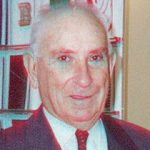 1920 – Shaban Demiraj, a well-known Albanian linguist, albanologist and academic, is born in Vlora. He was the president of the Academy of Sciences of Albania during the years 1993-1997. Thus, he works as a teacher, professor and scientist for over 60 years, which is in itself a pleasant record. For these subjects he compiled the relevant textbooks, which were published as separate dispensations and books, with which Universities of Albania, Kosovo, Macedonia, etc. still work today. He headed with scientific and administrative skills for 27 years the chair of Albanian language at the Faculty of History and Philology (1962-1989). Scientifically prepared with a strict and demanding character, first of all towards oneself and then towards others, students and colleagues, with impeccable honesty, always humane. The duration in this function speaks for itself. Professor Sh. Demiraj belongs to the highest star of Albanians and albanologists of all times. His life and work speak of love for the Albanian language, even for the Language itself, for passion, patience and exemplary perseverance in the path of the researcher, the tireless scientist. With work and production, he has erected a monument to himself. He translated Jack London’s novel Martin Iden (1995), in brushed language, away from the influences of pure English constructions, an example for other translators. A whole life full of study, research, lasting scientific creativity, long life. Because he is like that, he was elected a member of the organizing committee and a delegate of the Spelling Congress (1972), he was given the high titles of Professor (1972), Teacher of the People (1977), Honored Professor 1990, member of the Academy of Sciences of Albania (1989), its chairman (1993-1997), external member of the Kosovo Academy of Sciences and Arts (1996), member of the Central European Academy of Sciences and Arts (1997), honorary member of the Diplomatic Academy of London ( 2000), Vice President of AIESEE (International Association of Southeast European Studies (1994-1998). Laureate of two Republic Awards, second class (1979) and first class (1989). Decorated with the Order of the Grand Master of Labor (2000 He is an Honorary Citizen of Vlora (2001).
1920 – Shaban Demiraj, a well-known Albanian linguist, albanologist and academic, is born in Vlora. He was the president of the Academy of Sciences of Albania during the years 1993-1997. Thus, he works as a teacher, professor and scientist for over 60 years, which is in itself a pleasant record. For these subjects he compiled the relevant textbooks, which were published as separate dispensations and books, with which Universities of Albania, Kosovo, Macedonia, etc. still work today. He headed with scientific and administrative skills for 27 years the chair of Albanian language at the Faculty of History and Philology (1962-1989). Scientifically prepared with a strict and demanding character, first of all towards oneself and then towards others, students and colleagues, with impeccable honesty, always humane. The duration in this function speaks for itself. Professor Sh. Demiraj belongs to the highest star of Albanians and albanologists of all times. His life and work speak of love for the Albanian language, even for the Language itself, for passion, patience and exemplary perseverance in the path of the researcher, the tireless scientist. With work and production, he has erected a monument to himself. He translated Jack London’s novel Martin Iden (1995), in brushed language, away from the influences of pure English constructions, an example for other translators. A whole life full of study, research, lasting scientific creativity, long life. Because he is like that, he was elected a member of the organizing committee and a delegate of the Spelling Congress (1972), he was given the high titles of Professor (1972), Teacher of the People (1977), Honored Professor 1990, member of the Academy of Sciences of Albania (1989), its chairman (1993-1997), external member of the Kosovo Academy of Sciences and Arts (1996), member of the Central European Academy of Sciences and Arts (1997), honorary member of the Diplomatic Academy of London ( 2000), Vice President of AIESEE (International Association of Southeast European Studies (1994-1998). Laureate of two Republic Awards, second class (1979) and first class (1989). Decorated with the Order of the Grand Master of Labor (2000 He is an Honorary Citizen of Vlora (2001).
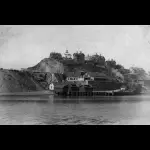 1934 – Alcatraz Island off the San Francisco coast turns into one of the most famous federal high security prisons in the United States. In this 20-acre prison island, over the 56 years of its existence, some of the most prominent exponents of crime in the US, such as Al Capone, Mickey Cohen, George Kelly, and Robert Stroud, have served their sentence. But only 3 prisoners were able to escape the island by swimming, whose bodies were never recovered.
1934 – Alcatraz Island off the San Francisco coast turns into one of the most famous federal high security prisons in the United States. In this 20-acre prison island, over the 56 years of its existence, some of the most prominent exponents of crime in the US, such as Al Capone, Mickey Cohen, George Kelly, and Robert Stroud, have served their sentence. But only 3 prisoners were able to escape the island by swimming, whose bodies were never recovered.
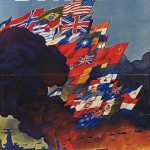 1942 – Signed in San Francisco, from 48 countries, the United Nations Declaration. This statement would also formalize the alliance between the anti-Nazi-fascist states led by the so-called Great Four, which included the US, USSR, Great Britain, and China. This declaration would then be signed by other states liberated from Nazi occupation such as Albania.
1942 – Signed in San Francisco, from 48 countries, the United Nations Declaration. This statement would also formalize the alliance between the anti-Nazi-fascist states led by the so-called Great Four, which included the US, USSR, Great Britain, and China. This declaration would then be signed by other states liberated from Nazi occupation such as Albania.
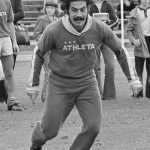 1946 – Born in Sao Paulo, Brazil, Rivellino, one of the most famous footballers in the country. Rivellino would stand out with his talents in the Brazilian National Football Team, being declared World Champion in Mexico 1970, as well as occupying a place of honor in Germany 1974, and Argentina 1978. For his extraordinary soccer abilities he would be named the Hitting. atomic.
1946 – Born in Sao Paulo, Brazil, Rivellino, one of the most famous footballers in the country. Rivellino would stand out with his talents in the Brazilian National Football Team, being declared World Champion in Mexico 1970, as well as occupying a place of honor in Germany 1974, and Argentina 1978. For his extraordinary soccer abilities he would be named the Hitting. atomic.
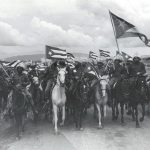 1959 – Ends successfully after a six-year period of the Cuban Communist Revolution led by Fidel Castro and Ernesto Che Guevara. After months of fierce fighting, Cuban revolutionary guerrilla forces called the Barbudos (Bearded) take control of the Havana capital. Fidel Castro is proclaimed Communist Cuban leader while pro-American leader Fulgencio Batista flees to Mexico.
1959 – Ends successfully after a six-year period of the Cuban Communist Revolution led by Fidel Castro and Ernesto Che Guevara. After months of fierce fighting, Cuban revolutionary guerrilla forces called the Barbudos (Bearded) take control of the Havana capital. Fidel Castro is proclaimed Communist Cuban leader while pro-American leader Fulgencio Batista flees to Mexico.
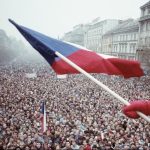 1993 – Peacefully dissolves the state of Czechoslovakia, leaving the creation of two new Central European states, the Czech Republic with the capital Prague and Slovakia with the capital Bratislava. After the end of the Velvet Revolution, Nobel laureate Vaclav Havel would become the first post-communist Czech President. The Czech Republic and Slovakia would experience slow economic growth in the years ahead.
1993 – Peacefully dissolves the state of Czechoslovakia, leaving the creation of two new Central European states, the Czech Republic with the capital Prague and Slovakia with the capital Bratislava. After the end of the Velvet Revolution, Nobel laureate Vaclav Havel would become the first post-communist Czech President. The Czech Republic and Slovakia would experience slow economic growth in the years ahead.
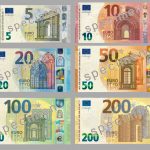 1999 – The use of the single Euro currency comes into force in 12 European Union countries. In the years that followed the EU enlargement, the Euro would become the official currency of all the countries of this organization with the exception of Great Britain and Denmark. But the European official currency, after 2010, would fall sharply against its dollar, bringing about a downturn in the European economy.
1999 – The use of the single Euro currency comes into force in 12 European Union countries. In the years that followed the EU enlargement, the Euro would become the official currency of all the countries of this organization with the exception of Great Britain and Denmark. But the European official currency, after 2010, would fall sharply against its dollar, bringing about a downturn in the European economy.
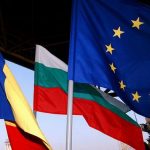 2007 – Romania and Bulgaria become the newest members of the European Union. After the accession of a number of Central and Eastern European countries, Sofia and Bucharest would also join the EU, becoming the third generation of Balkan states to join the organization after Greece and Slovenia. But at the same time, these two countries would rank as the weakest economies in the European Union.
2007 – Romania and Bulgaria become the newest members of the European Union. After the accession of a number of Central and Eastern European countries, Sofia and Bucharest would also join the EU, becoming the third generation of Balkan states to join the organization after Greece and Slovenia. But at the same time, these two countries would rank as the weakest economies in the European Union.
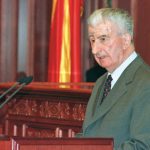 2012 – First Macedonian President Kiro Gligorov dies in Skopje at the age of 94. Gligorov would lead the small Macedonian state towards a peaceful separation from the Yugoslav Federation in 1991. He would survive a bomb attack on his presidential escort two years later by unknown assassins. The Macedonian state formed by Gligorov would have 40 per cent of the Albanian population.
2012 – First Macedonian President Kiro Gligorov dies in Skopje at the age of 94. Gligorov would lead the small Macedonian state towards a peaceful separation from the Yugoslav Federation in 1991. He would survive a bomb attack on his presidential escort two years later by unknown assassins. The Macedonian state formed by Gligorov would have 40 per cent of the Albanian population.






